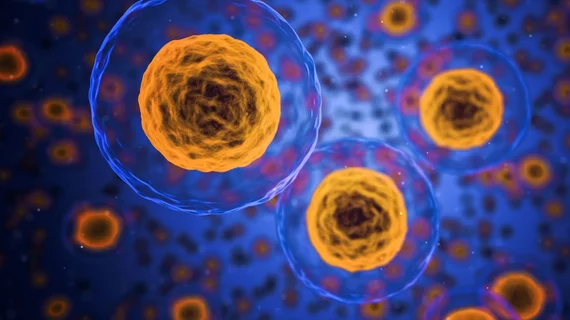Neural network improves imaging technique for an advanced look at cancer cells
A new imaging technique developed by researchers from Rensselaer Polytechnic Institute offers a unique look at cells and tissue.
The novel method uses a deep neural network to improve fluorescence lifetime imaging, which allowed scientists at the Troy, New York-based institution to view molecular-level interactions within cells, and may improve doctors' ability to identify cancer and other diseases.
“This is an enabling technology for many clinical applications,” Xavier Intes, PhD, lead researcher and a professor of biomedical engineering at Rensselaer, said in a statement. “For instance, it may be used for in vivo real-time imaging of a tumor, which may help surgeons see the lesion during their procedures, enabling them to completely remove cancer tissue with minimal damage to healthy tissue.”
Fluorescence lifetime imaging has been historically complex, requiring time and difficult math tools, making consistent imaging nearly impossible. These challenges have also hampered its use in the clinical environment.
Intes and co-researchers trained their deep neural network to automatically set these mathematical settings, eliminating potential user error and cutting time necessary to produce detailed images of activity within individual cells—also called metabolic imaging.
After testing their technique with biologists at Albany Medical College by imaging cancer cells under a microscope, Intes et al. found their neural network performed “as well as, or in some cases better than” commercial software. Rensselaer researchers also noted their approach required less light, but still produced clear images, critical for biological uses, the researchers noted.
The team detailed their approach in a Nov. 12 study published in the Proceedings of the National Academy of Sciences.

